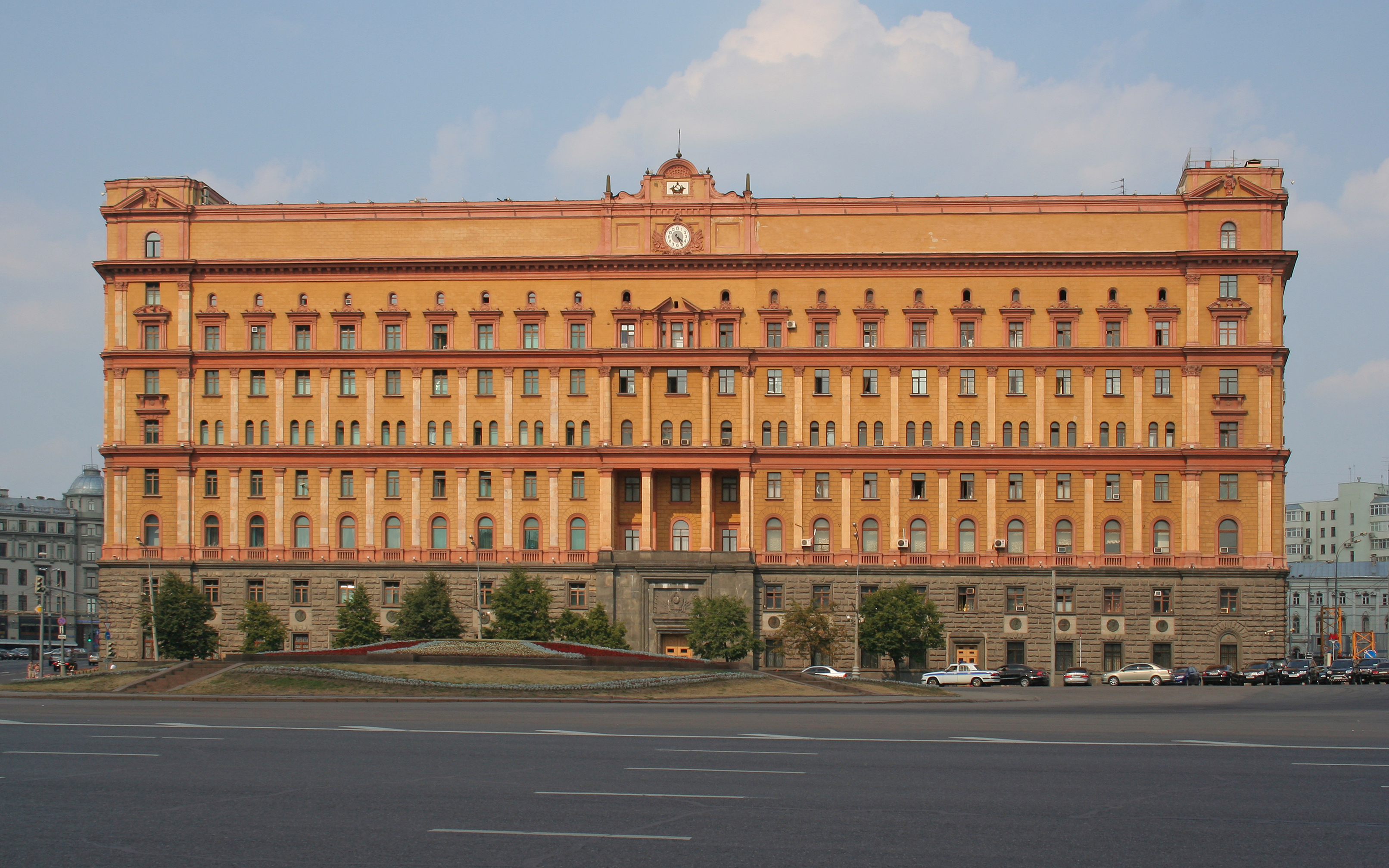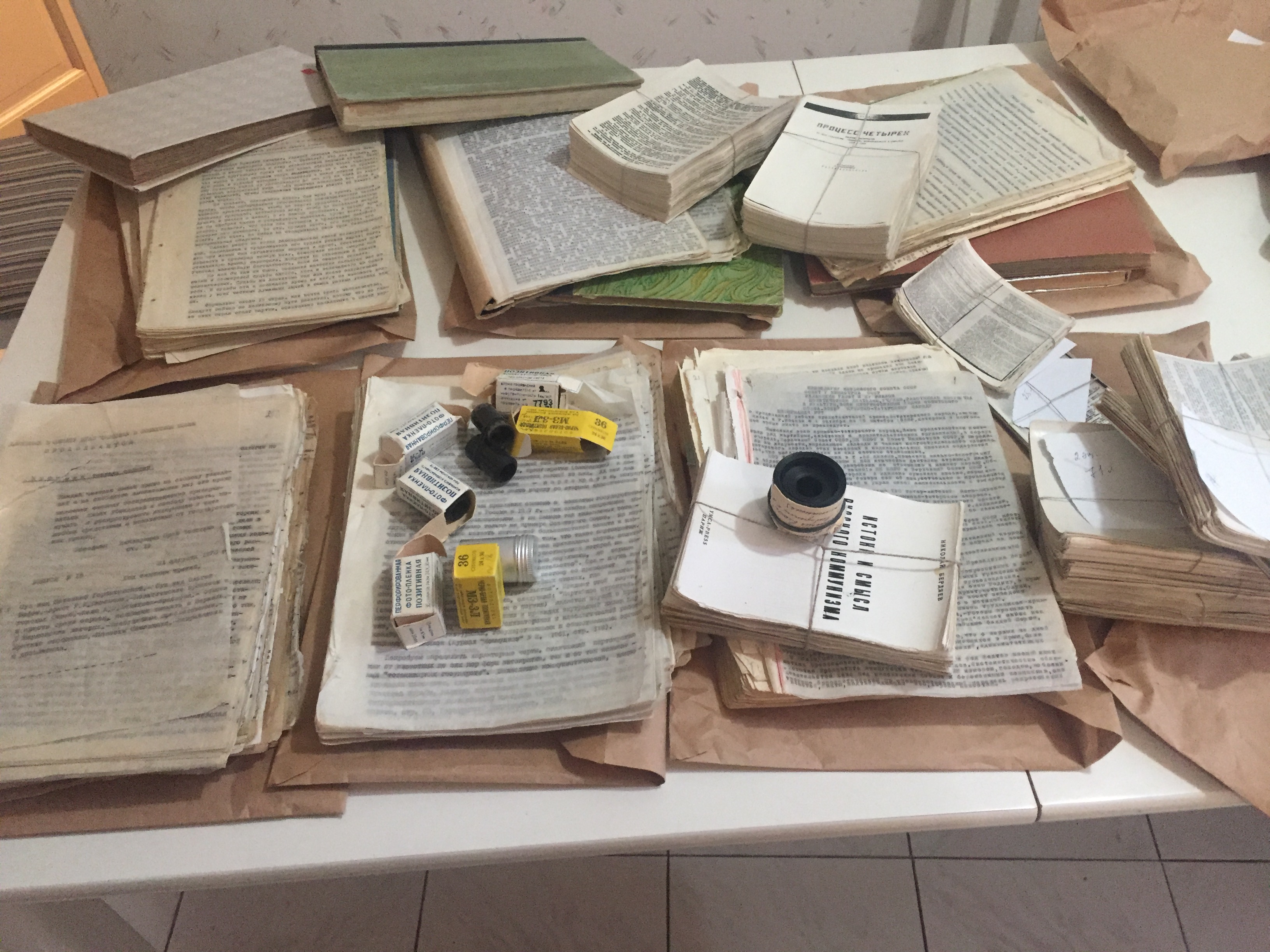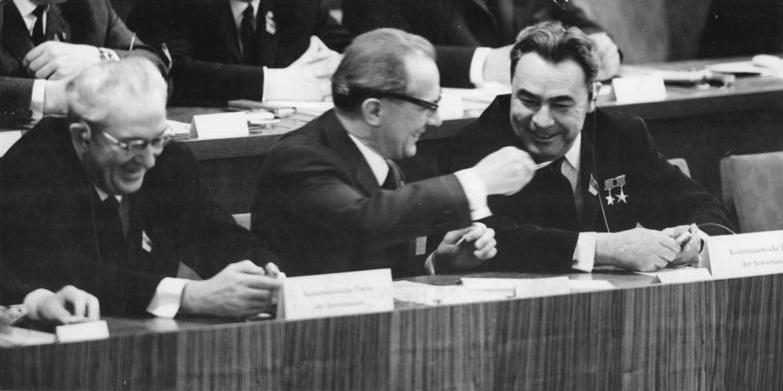|
Chekism
Chekism (russian: Чекизм; from ''Cheka'', a colloquial name of the All-Russian Extraordinary Commission,), abbreviated in Russian as ЧК, ''Che-Ka''. the first Soviet secret police organization) is a term to describe the situation in the Soviet Union where the secret police strongly controlled all spheres of society. It is also used by critics of the current Kremlin authorities to describe the power enjoyed by law-enforcement agencies in contemporary Russia. Soviet Union Chekism is described as a product of the set of beliefs, practices, and assumptions in the security police introduced and developed for more than a decade by Felix Dzerzhinskii. The systems he had put in place led to the sacralization of the concept that legitimized and romanticized political terror. Abdurakhman Avtorkhanov put forward the idea of the secret political police as a backbone of Soviet society. Avtorkhanov wrote in his ''The Technology of Power'' (1959): Others shared similar ideas, includi ... [...More Info...] [...Related Items...] OR: [Wikipedia] [Google] [Baidu] |
Abdurakhman Avtorkhanov
Abdurakhman Genazovich (Ganazovich) Avtorkhanov ( ce, Абдурахма́н Гена́зович (Гана́зович) Авторха́нов, 23 October 1908 – 24 April 1997) was a Chechen historian who worked primarily in the fields of Soviet history and History of the Communist Party of the Soviet Union (CPSU). Biography and works Avtorkhanov's date of birth is uncertain. According to his memoirs he was born between 1908 and 1910 in the small Chechen village of Lakha-Nevri, which was destroyed by Soviet troops during the deportation of the Chechen and Ingush population in 1944. He was given the last name of Avtorkhanov in 1923 when he was registered for an orphanage. The young Avtorkhanov enthusiastically joined the Communist Party in 1927 and served as a high-ranking party functionary. He graduated from the elite Moscow Institute of Red Professors with a major in Russian history in 1937, during which time he wrote six books on the history of the Caucasus. He was ar ... [...More Info...] [...Related Items...] OR: [Wikipedia] [Google] [Baidu] |
All-Russian Extraordinary Commission
The All-Russian Extraordinary Commission ( rus, Всероссийская чрезвычайная комиссия, r=Vserossiyskaya chrezvychaynaya komissiya, p=fsʲɪrɐˈsʲijskəjə tɕrʲɪzvɨˈtɕæjnəjə kɐˈmʲisʲɪjə), abbreviated as VChK ( rus, ВЧК, p=vɛ tɕe ˈka), and commonly known as Cheka ( rus, Чека, p=tɕɪˈka; from the initialism russian: ЧК, ChK, label=none), was the first of a succession of Soviet secret-police organizations. Established on December 5 (Old Style) 1917 by the Sovnarkom, it came under the leadership of Felix Dzerzhinsky, a Polish aristocrat-turned-Bolshevik. By late 1918, hundreds of Cheka committees had sprung up in the RSFSR at the oblast, guberniya, raion, uyezd, and volost levels. Ostensibly set up to protect the revolution from reactionary forces, i.e., "class enemies" such as the bourgeoisie and members of the clergy, it soon became the repression tool against all political opponents of the communist regime. At the direc ... [...More Info...] [...Related Items...] OR: [Wikipedia] [Google] [Baidu] |
Evgenia Albats
Yevgenia Markovna Albats (russian: Евге́ния Ма́рковна Альба́ц, born 5 September 1958Editorial dossier , referring to another web sit Labyrinth ''The New Russia's Dictionary: a world of literature'' '''') is a Russian |
Secret Police
Secret police (or political police) are intelligence, security or police agencies that engage in covert operations against a government's political, religious, or social opponents and dissidents. Secret police organizations are characteristic of authoritarian and totalitarian regimes. They protect the political power of a dictator or regime and often operate outside the law to repress dissidents and weaken political opposition, frequently using violence. History Africa Uganda In Uganda, the State Research Bureau (SRB) was a secret police organisation for President Idi Amin. The Bureau tortured many Ugandans, operating on behalf of a regime responsible for more than five hundred thousand violent deaths. The SRB attempted to infiltrate every area of Ugandan life. Asia China In East Asia, the ''jinyiwei'' (Embroidered Uniform Guard) of the Ming Dynasty was founded in the 1360s by the Hongwu Emperor and served as the dynasty's secret police until the collapse of Ming ru ... [...More Info...] [...Related Items...] OR: [Wikipedia] [Google] [Baidu] |
Political Police
Secret police (or political police) are intelligence, security or police agencies that engage in covert operations against a government's political, religious, or social opponents and dissidents. Secret police organizations are characteristic of authoritarian and totalitarian regimes. They protect the political power of a dictator or regime and often operate outside the law to repress dissidents and weaken political opposition, frequently using violence. History Africa Uganda In Uganda, the State Research Bureau (SRB) was a secret police organisation for President Idi Amin. The Bureau tortured many Ugandans, operating on behalf of a regime responsible for more than five hundred thousand violent deaths. The SRB attempted to infiltrate every area of Ugandan life. Asia China In East Asia, the ''jinyiwei'' (Embroidered Uniform Guard) of the Ming Dynasty was founded in the 1360s by the Hongwu Emperor and served as the dynasty's secret police until the collapse of Ming ru ... [...More Info...] [...Related Items...] OR: [Wikipedia] [Google] [Baidu] |
Gestapo
The (), abbreviated Gestapo (; ), was the official secret police of Nazi Germany and in German-occupied Europe. The force was created by Hermann Göring in 1933 by combining the various political police agencies of Prussia into one organisation. On 20 April 1934, oversight of the Gestapo passed to the head of the ''Schutzstaffel'' (SS), Heinrich Himmler, who was also appointed Chief of German Police by Hitler in 1936. Instead of being exclusively a Prussian state agency, the Gestapo became a national one as a sub-office of the (SiPo; Security Police). From 27 September 1939, it was administered by the Reich Security Main Office (RSHA). It became known as (Dept) 4 of the RSHA and was considered a sister organisation to the (SD; Security Service). During World War II, the Gestapo played a key role in the Holocaust. After the war ended, the Gestapo was declared a criminal organisation by the International Military Tribunal (IMT) at the Nuremberg trials. History After Adol ... [...More Info...] [...Related Items...] OR: [Wikipedia] [Google] [Baidu] |
Heinrich Himmler
Heinrich Luitpold Himmler (; 7 October 1900 – 23 May 1945) was of the (Protection Squadron; SS), and a leading member of the Nazi Party of Germany. Himmler was one of the most powerful men in Nazi Germany and a main architect of the Holocaust. As a member of a reserve battalion during World War I, Himmler did not see active service, and did not fight. He studied agriculture in university, and joined the Nazi Party in 1923 and the SS in 1925. In 1929, he was appointed by Adolf Hitler. Over the next 16 years, he developed the SS from a 290-man battalion into a million-strong paramilitary group, and set up and controlled the Nazi concentration camps. He was known for good organisational skills and for selecting highly competent subordinates, such as Reinhard Heydrich in 1931. From 1943 onwards, he was both Chief of German Police and Minister of the Interior, overseeing all internal and external police and security forces, including the Gestapo (Secret State Police). H ... [...More Info...] [...Related Items...] OR: [Wikipedia] [Google] [Baidu] |
John Barron (journalist)
John Daniel Barron (January 26, 1930 – February 24, 2005) was an American journalist and investigative writer. He wrote several books about Soviet espionage via the KGB and other agencies. Early life John Barron was born January 26, 1930, in Wichita Falls, Texas, the son of a Methodist minister. He graduated from the University of Missouri and studied Russian at the United States Naval Postgraduate School in Monterey, California. He served in Berlin as a naval intelligence officer. Journalistic career In 1957, he joined the ''Washington Star'' as an investigative reporter. In 1965, Barron joined the Washington bureau of ''Reader's Digest''. There he wrote more than 100 stories on a wide variety of subjects—notably a 1980 story concerning unanswered questions surrounding the drowning death of Mary Jo Kopechne at Chappaquiddick in a car driven by Ted Kennedy. After Barron published his 1974 book ''KGB: The Secret Work of Soviet Secret Agents'', the KGB attempted to dis ... [...More Info...] [...Related Items...] OR: [Wikipedia] [Google] [Baidu] |
Oleg Kalugin
Oleg Danilovich Kalugin (russian: Олег Данилович Калугин; born 6 September 1934) is a former KGB general (stripped of his rank and awards by a Russian Court decision in 2002). He was during a time, head of KGB political operations in the United States and later a critic of the agency. After being convicted of spying for the West in absentia during a trial in Moscow, he remained in the US and was sworn in as a citizen on 4 August 2003. Early life and career Born 6 September 1934, in Leningrad and son of an officer in the NKVD, Kalugin attended Leningrad State University and was recruited by the KGB, under the aegis of the First Chief Directorate (Foreign Intelligence). After training, he was sent to the United States, where he enrolled as a journalism student at Columbia University on a Fulbright scholarship in 1958, along with Aleksandr Yakovlev. He continued to pose as a journalist for a number of years, eventually serving as the Radio Moscow correspondent ... [...More Info...] [...Related Items...] OR: [Wikipedia] [Google] [Baidu] |
Lubyanka Building
The Lubyanka ( rus, Лубянка, p=lʊˈbʲankə) is the popular name for the building which contains the headquarters of the FSB, and its affiliated prison, on Lubyanka Square in the Meshchansky District of Moscow, Russia. It is a large Neo-Baroque building with a facade of yellow brick designed by Alexander V. Ivanov in 1897 and augmented by Aleksey Shchusev from 1940 to 1947. It was previously the national headquarters of the KGB. Soviet hammer and sickles can be seen on the building's facade. Description The Lubyanka building is home to the Lubyanka prison, the headquarters of the Border Guard Service, a KGB museum, and a subsection of the FSB. Part of the prison was turned into a prison museum, but a special authorization is required for visits. The lower floors are made of granite with emblazoned Soviet crests. History Origins The Lubyanka was originally built in 1898 as the headquarters of the All-Russia Insurance Company (''Rossiya Insurance Company''), ... [...More Info...] [...Related Items...] OR: [Wikipedia] [Google] [Baidu] |
Lavrenty Beria
Lavrentiy Pavlovich Beria (; rus, Лавре́нтий Па́влович Бе́рия, Lavréntiy Pávlovich Bériya, p=ˈbʲerʲiə; ka, ლავრენტი ბერია, tr, ; – 23 December 1953) was a Georgian Bolsheviks, Bolshevik and Soviet Union, Soviet politician, Marshal of the Soviet Union and state security administrator, chief of the Soviet security, and chief of the People's Commissariat for Internal Affairs (NKVD) under Joseph Stalin during the World War II, Second World War, and promoted to deputy premier under Stalin in 1941. He officially joined the Politburo of the Communist Party of the Soviet Union, Politburo in 1946. Beria was the longest-lived and most influential of Stalin's secret police chiefs, wielding his most substantial influence during and after the war. Following the Soviet invasion of Poland in 1939, he was responsible for organizing purges such as the Katyn massacre of 22,000 Polish officers and officials. He would later also ... [...More Info...] [...Related Items...] OR: [Wikipedia] [Google] [Baidu] |
Yuri Andropov
Yuri Vladimirovich Andropov (– 9 February 1984) was the sixth paramount leader of the Soviet Union and the fourth General Secretary of the Communist Party of the Soviet Union. After Leonid Brezhnev's 18-year rule, Andropov served in the post from November 1982 until his death in February 1984. Earlier in his career, Andropov served as the Soviet ambassador to Hungary from 1954 to 1957, during which time he was involved in the suppression of the 1956 Hungarian Uprising. He was named chairman of the KGB on 10 May 1967. In this position, he oversaw a massive crackdown on dissent carried out via mass arrests and involuntary psychiatric commitment of people deemed "socially undesirable". After Brezhnev suffered a stroke in 1975 that impaired his ability to govern, Andropov effectively dominated policy-making alongside Foreign Minister Andrei Gromyko, Defense Minister Andrei Grechko and Grechko's successor, Marshal Dmitry Ustinov, for the rest of Brezhnev's rule. Upon Brezhnev ... [...More Info...] [...Related Items...] OR: [Wikipedia] [Google] [Baidu] |



.jpg)




